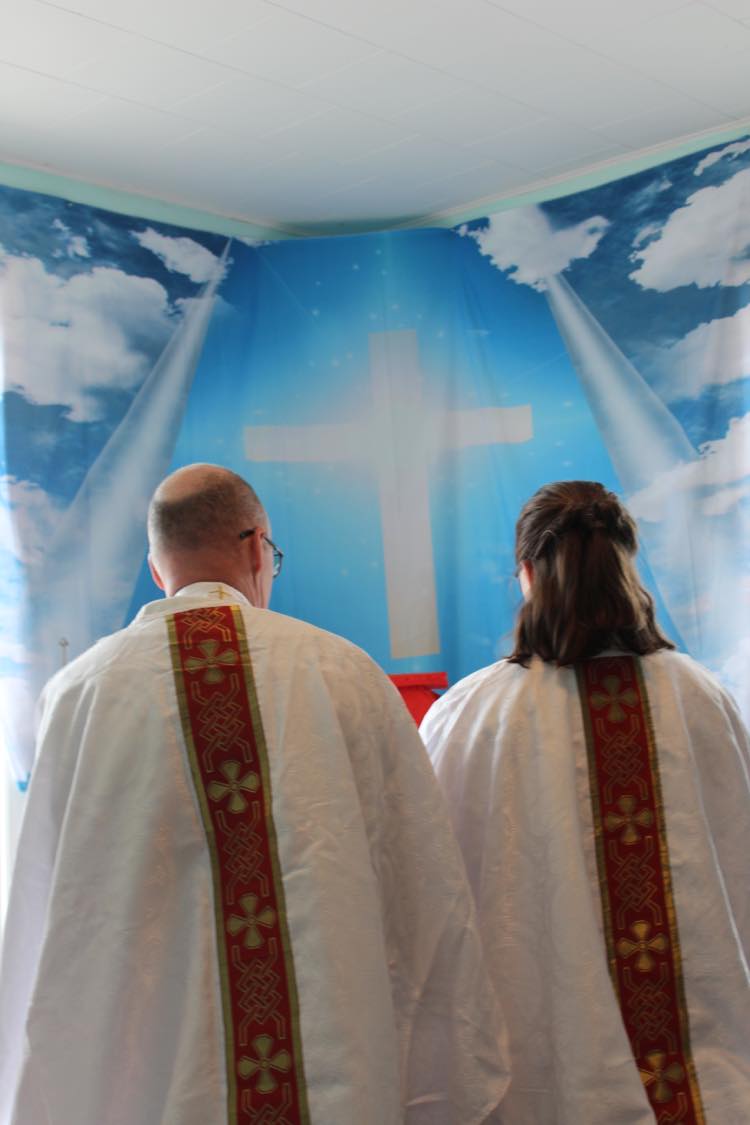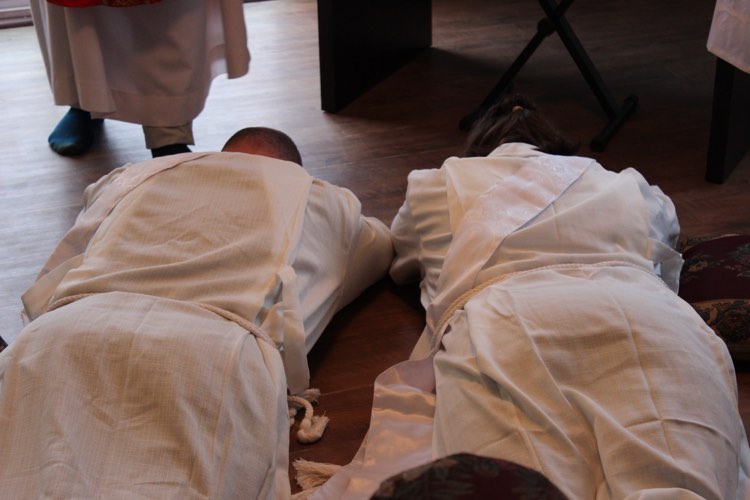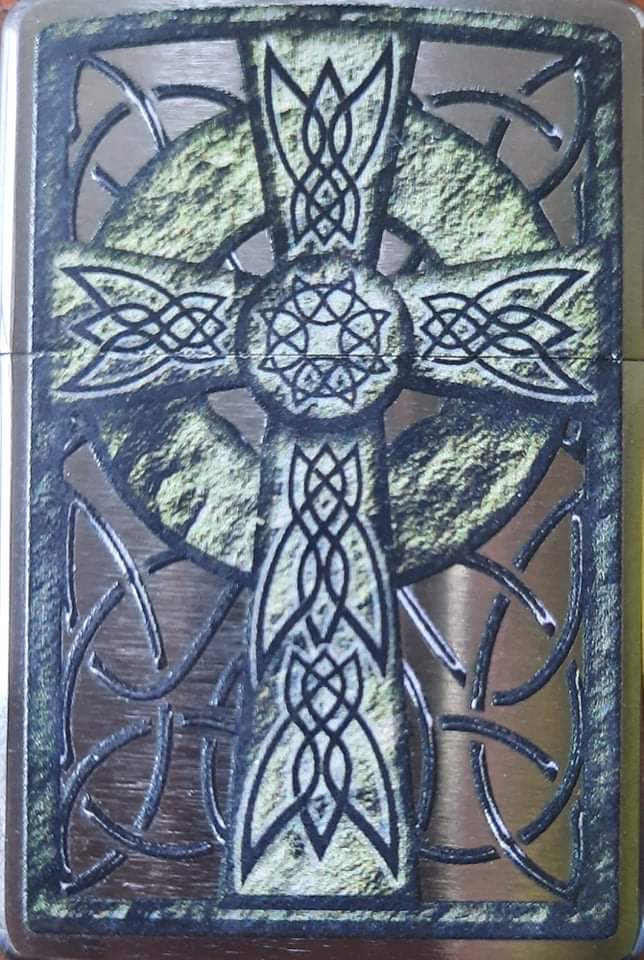- Home
- about stbrigits
- Clergy Ethical Standards
Simply Catholic and Welcoming You
Clergy Ethical Standards
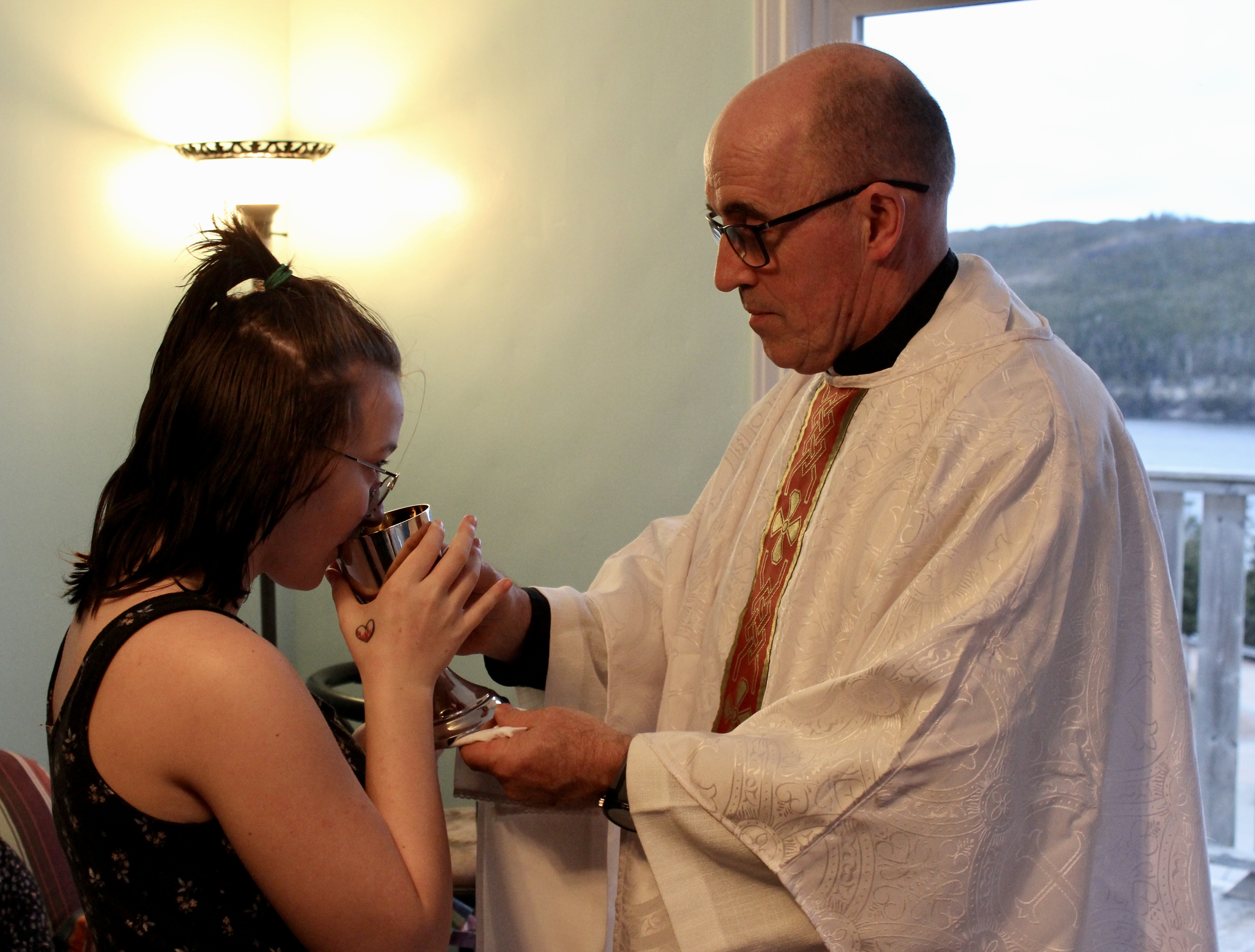
A Priest Offers The Blood Of Christ to a Young Woman
Written clergy ethical standards have become necessary to inform, educate and provide a basis for enforcement to codes of conduct becoming of clergy. We live in a day and age where it has been more than proven that if it isn't written down we cannot assume that otherwise reasonable people will follow what once would have been thought to be self evident expectations of behaviour especially in the area of ethics and law.
Unfortunately time and time again, clerics have proven that they too are no different in this regard and the church and public must be protected from unethical and unscrupulous behaviours and actions by clergy members who behave in unprofessional, even illegal ways.
Written clergy ethical standards do not, of themselves protect anyone, however they do provide both clergy and the public with a basic information and education on what is expected and what will not be condoned. If nothing else, having written standards means every cleric "knows or ought reasonably to know" what is expected and what they will be held accountable for.
When enforcement proves necessary such written clergy ethical standards serve to strengthen canon and civil law processes by removing excuses and claims of 'not knowing' or 'not having been informed'.
Here at St. Brigit's Community Catholic Church we have borrowed heavily from our Roman/Latin Rite and Anglican Rite sister churches and the written standards they have produced in response to incidents of wrongdoing in the past.
Even though our branch of the faith is small, we kept much of their verbiage instead of waiting for our church to grow and then having to go back and change the wording of our written Clerical Ethical Standards. This also better accommodates our concordat and sister churches in other provinces who, not previously having written their own such statements are free to now adopt or modify the standards written here.
Clergy Ethical Standards
1. Professional and Personal Interaction
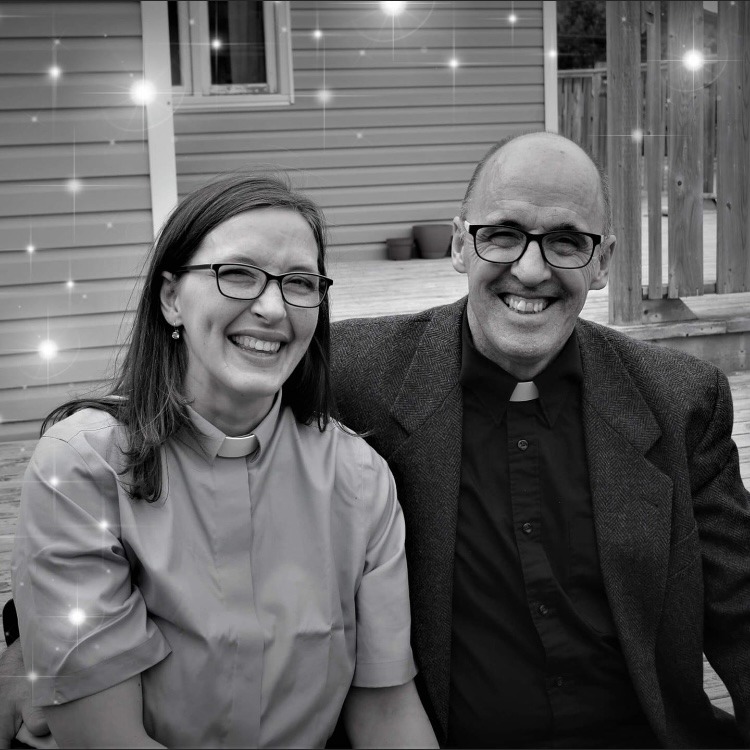
We are a married Couple Who are Both Priests
1.1 Clergy will maintain appropriate boundaries in professional relationships, and not use the power inherent in their position to exercise unreasonable or inappropriate authority over others.
1.2 Clergy will relate to others respectfully and professionally, and will work collaboratively and cooperatively with others serving the Church.
1.3 Clergy must not engage in physical, psychological, or sexual harassment of any person, and must not tolerate such harassment by others serving the Church. Harassment may be a single incident or a persistent pattern of behavior where the purpose is to create a hostile, offensive, or intimidating work environment
1.4 Clergy are called to integrity according to their life vocation and to exhibit this through their conduct.
a. Clergy must not exploit another person for any purpose.
b. Clergy must not acquire, possess, or distribute any pornographic images.
c. Clergy will dress professionally and appropriately.
1.5 Clergy must not possess, use, or distribute alcohol or other drugs illegally. Clergy must not be under the influence of illegal drugs, or under the influence of alcohol or medications that impair stable functioning or sound judgment.
1.6 Clergy are prohibited from showing pornographic material to minors and from illegally providing alcohol, tobacco or drugs to minors.
1.7 While reasonable debate on matters of social import is valued, Clergy must conduct themselves in a manner consistent with Catholic teaching as set forth in the Catechism of the Catholic Church in all public communications. Public communications are communications offered in a public forum or disseminated to a general audience, and also include communications whose potential for broad dissemination is reasonably foreseeable (e.g., homily, public speech, bulletin article, op-ed submission to media, social media post, or blog).
1.8 Clergy must exercise discretion and confidentiality in handling sensitive information and may not disclose confidential information to others not entitled to such information.
Clergy Ethical Standards
2. Conduct With Minors
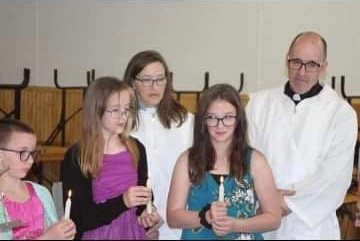
Here we are Both Priests With Our Three Children at Their Confirmation
2.1 Clergy must use prudent judgment and common sense when working with minors.
2.2 Clergy should be aware of their own vulnerability and the vulnerability of others when working with minors. Clergy should avoid any conduct that a reasonable person could misconstrue as improper. A team approach should be used when working with minors, and appropriate supervision should be in place to promote safe environments for all.
2.3 Clergy should avoid being alone with any unrelated minor, except for sacramental confession, or for reasonable, common sense exceptions, such as emergency situations and circumstances where the interaction is incidental and not extended. One-on-one meetings with an unrelated minor are best held in a public area; or if that is not appropriate or possible, in an area visible to others through a window or open door.
2.4 Physical contact with a minor must be nonsexual and appropriate.
2.5 Clergy who minister to the home-bound and to vulnerable adults are encouraged to serve in the company of another safe-environment trained adult whenever possible.
2.6 Clergy must not use alcohol or tobacco when working with minors.
2.7 Clergy are prohibited from having an unrelated minor in a vehicle unless supervised. Therefore, Clergy must not travel in a vehicle with an unrelated minor or vulnerable adult without another safe-environment trained adult present, except in documented emergencies.
2.8 Clergy must not share private overnight accommodations (bedroom, hotel room, tent, camper, bed, etc.) with any unrelated minor. In situations in which overnight accommodations are in open spaces (gymnasiums, classrooms, gathering spaces, etc.), actions should be taken to provide suitable supervision and create reasonable separation between sexes and between adults and minors.
2.9 Communications by Clergy with unrelated minors must be for professional reasons only. Clergy must maintain appropriate boundaries in all communications with an unrelated minor, including communications through the use of electronic devices or web-based media.
a. Clergy should make certain that the parents or guardians of an unrelated minor are aware of the content of private electronic or print communications sent to or received from that unrelated minor. In exceptional situations when a parent or guardian is not made aware of the content of a private communication, Clergy must share the communication with another safe-environment trained adult.
b. Informing parents or guardians is not required for non-private communications, such as those sent to youth groups regarding meeting locations or times, or other administrative matters.
2.10 Clergy will not use physical force or use profane, demeaning, or abusive language in interactions with a minor; except that proportional physical force may be used as necessary in situations of self-defense or when the minor is a danger to self or others.
2.11 Clergy should not accept expensive or excessive gifts from an unrelated minor, or give expensive, individual or personal gifts to an unrelated minor without the permission of the parent or guardian. Exchanges of modest, appropriate gifts between groups of minors and Clergy in the ordinary course of parish programs and school settings are permissible.
Clergy Ethical Standards
3. Conduct Related to Counseling
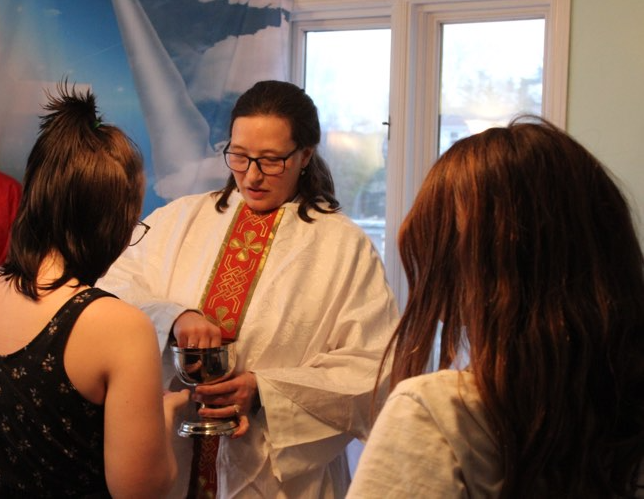
Amma Charlene Distributes The Holy Eucharist/ The Body of Christ
3.1 When engaged in counseling or spiritual direction, Clergy must take great care to respect the rights and advance the welfare of all involved.
3.2 When counseling services are provided to two or more people who have a relationship with each other, Clergy must:
a. Clarify the nature of the relationship(s);
b. Identify potential conflicts of interest; and
c. Discuss how to eliminate or manage the conflicts.
3.3 Counseling services provided by Clergy must be within the scope of their expertise, training, or certification.
3.4 Clergy are responsible for establishing and maintaining clear, appropriate boundaries in counseling relationships.
3.5 Counseling sessions must be held in appropriate settings and at appropriate times. Sessions must not be held at places or times that might confuse the person being counseled as to the nature of the relationship with the counselor.
3.6 Physical contact during counseling or spiritual direction may be misconstrued. Any physical contact must be appropriate in nature and duration.
3.7 Upon ending a counseling relationship, Clergy should recommend appropriate arrangements for the continued care of the person(s) they have been counseling.
4. Confidentiality in Pastoral Counseling and Counseling Relationships
4.1 Clergy must discuss the nature of confidentiality and its limitations with each person in counseling.
4.2 Information obtained by Clergy in the course of religious or spiritual advice, aid, or comfort is confidential and may be disclosed only:
a. With the written, informed consent of the person being counseled;
b. When there is clear and imminent danger to the person being counseled or to others (in this situation, Clergy must act in good faith to disclose only the information necessary to protect the parties affected and to prevent harm; if prudent, Clergy should inform the person being counseled about a possible disclosure before the disclosure is made);
c. When there is a serious threat to the health, safety, or welfare of a minor and disclosure of confidential information to a parent, legal guardian, or civil authorities is essential to the minor’s health, safety, or welfare (in this situation, Clergy should attempt to obtain informed consent from the minor before disclosure, and must act in good faith to disclose only the information necessary to address the health, safety or welfare threat);
d. When consultation with another professional would be beneficial to the person being counseled (in this situation, Clergy should attempt to obtain written informed consent from the person being counseled before disclosure, must act in good faith to disclose only the information necessary to receive assistance, and must obtain assurance from the other professional that he/she agrees to be bound by our standards of confidentiality);
e. When a Cleric is a defendant in a legal proceeding and the disclosure of confidential information is necessary to his defense (in this situation, the Cleric may disclose only the information necessary for his defense and only as permitted by civil and canon law); or
f. When legally required to do so consistent with civil or canon law.
4.3 Clergy must safeguard the confidentiality of any notes, files, or electronic records pertaining to counseling services. Counseling or spiritual direction sessions must not be video or audio recorded without the prior informed, written consent of all parties involved.
4.4 Knowledge that arises from professional pastoral counseling interactions may be used with discretion in teaching, writing, homilies, or other public presentations only when effective measures have been taken to safeguard individual identity and confidentiality.
4.5 Information received during the sacrament of confession may never be recorded or disclosed (see the 1983 Code of Canon Law, canon 983).
Clergy Ethical Standards
5. Records and Information
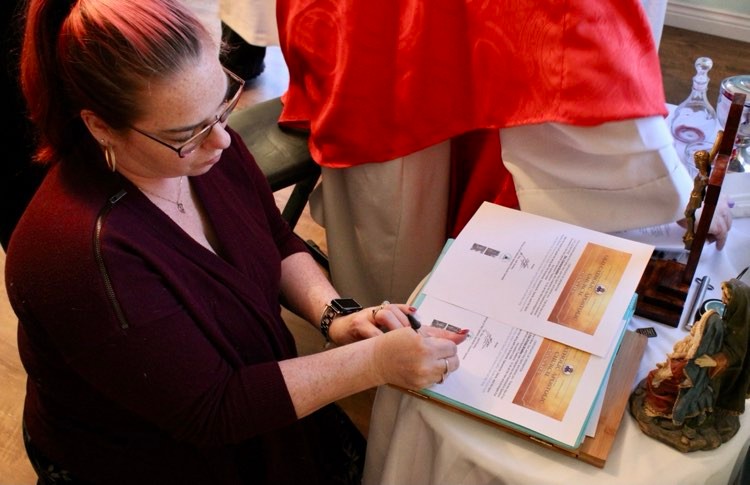
A Woman Signs as a Witness on Certificates; Records are Crucial to Ministry
5.1 All Chancery Corporation, parish, or Catholic school records are solely the property of the respective entity.
5.2 Records include all recorded information, documents, letters, maps, books, photographs, film, sound recordings, tapes, records generated in an electronic format, emails and any other documentary material regardless of media format.
5.3 No records will be accessed, shared, removed, destroyed, stored, or transferred into another media format, or otherwise disposed of, except in compliance with archdiocesan, parish, or Catholic school policies.
5.4 Confidential records will be kept separate from public records for privacy purposes. Confidential records include sacramental records, clergy files, personnel files, and records of individual financial contributions to, as well as financial records of, the Archdiocese, parish, or Catholic school.
5.5 When compiling and publishing statistical information from records, great care must be taken to preserve the anonymity of individuals.
Clergy Ethical Standards
6. Stewardship
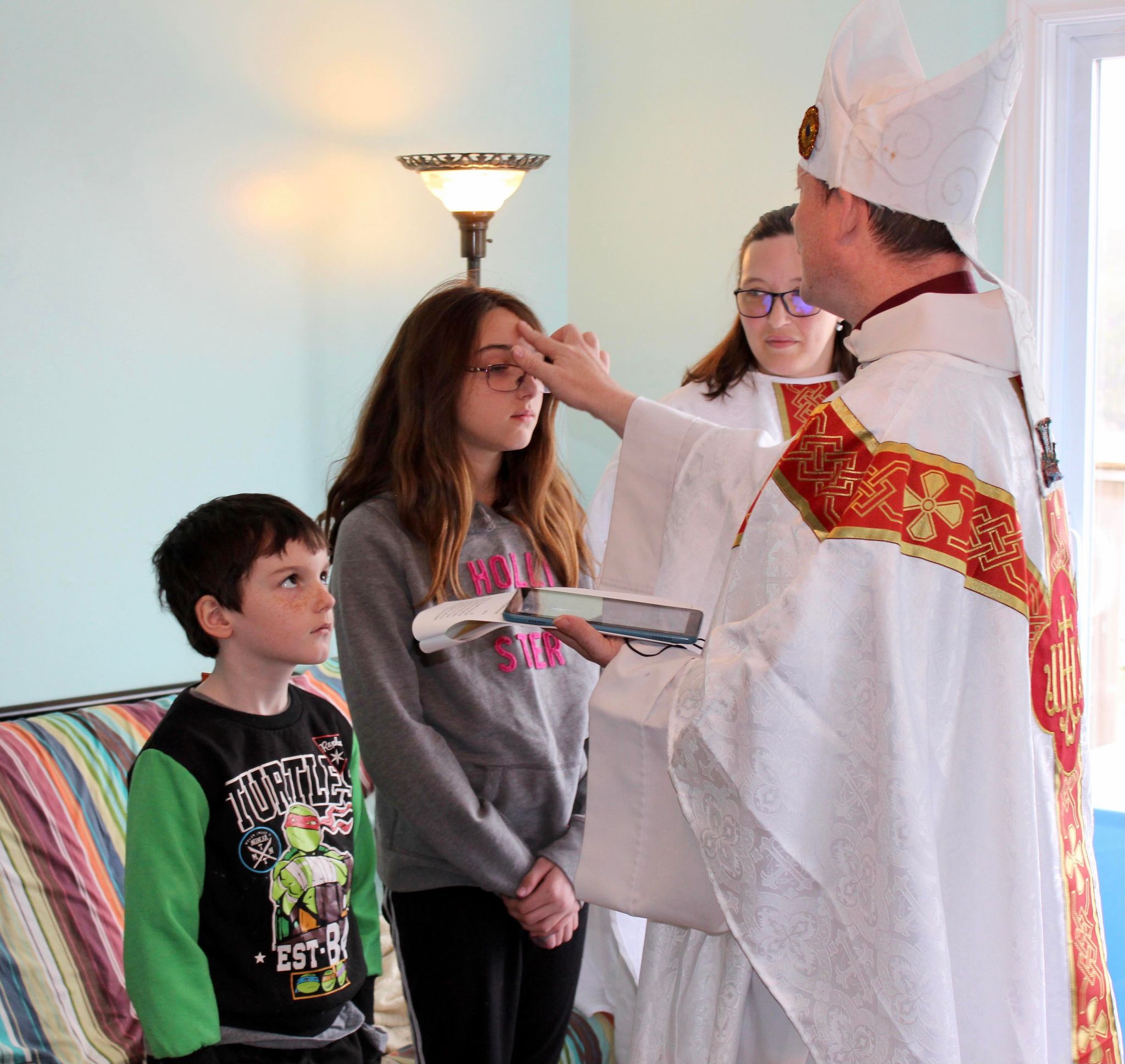
Two Youths Being Confirmed
6.1 Clergy must exercise responsible stewardship of all financial and material resources.
6.2 Clergy must provide a clear and accurate accounting of all funds and material resources for which they are responsible and must ensure that adequate systems and safeguards are in place and followed. Clergy will not misappropriate Church funds or materials for personal uses or purposes.
7. Conflicts of Interest
7.1 Clergy must avoid actions that may reasonably be perceived as exploiting their position with the Church to further their personal, religious, political, or business interests. Clergy should avoid situations that present conflicts of interest. Even the appearance of a conflict of interest can call integrity and professional conduct into question and should be avoided.
7.2 A conflict of interest may exist when Clergy have an ownership interest in, an investment interest in, or a compensation arrangement with, an entity or individual who engages in regular or substantial business with the Archdiocese, relevant parish, or relevant Catholic school.
7.3 Conflicts of interest situations that are to be avoided include:
a. Acting with unfair bias or partiality toward anyone with whom a Cleric has an existing professional or personal relationship;
b. Violating the confidence of another person for personal gain; and
c. Accepting any gift of excessive material value.
7.4 Clergy must exercise discretion when considering the assumption of fiduciary obligations or financial responsibility for a person associated with a parish or Catholic school, with the exception of family members, and should consult with a canonical administrator before assuming such obligation or responsibility. Priests are obliged to comply with the provisions of canons 285-286 of the 1983 Code of Canon Law.
7.5 Clergy may not receive dual compensation for work within the scope of their assignment or employment (e.g., a priest who receives a salary as a pastor may not also receive a salary as a director of faith formation at the same parish).
7.6 Clergy must disclose conflicts of interest to all affected parties. In resolving the issues, primary attention must always be given to the protection of the person receiving ministry or services.
Clergy Ethical Standards
8. Reporting Misconduct
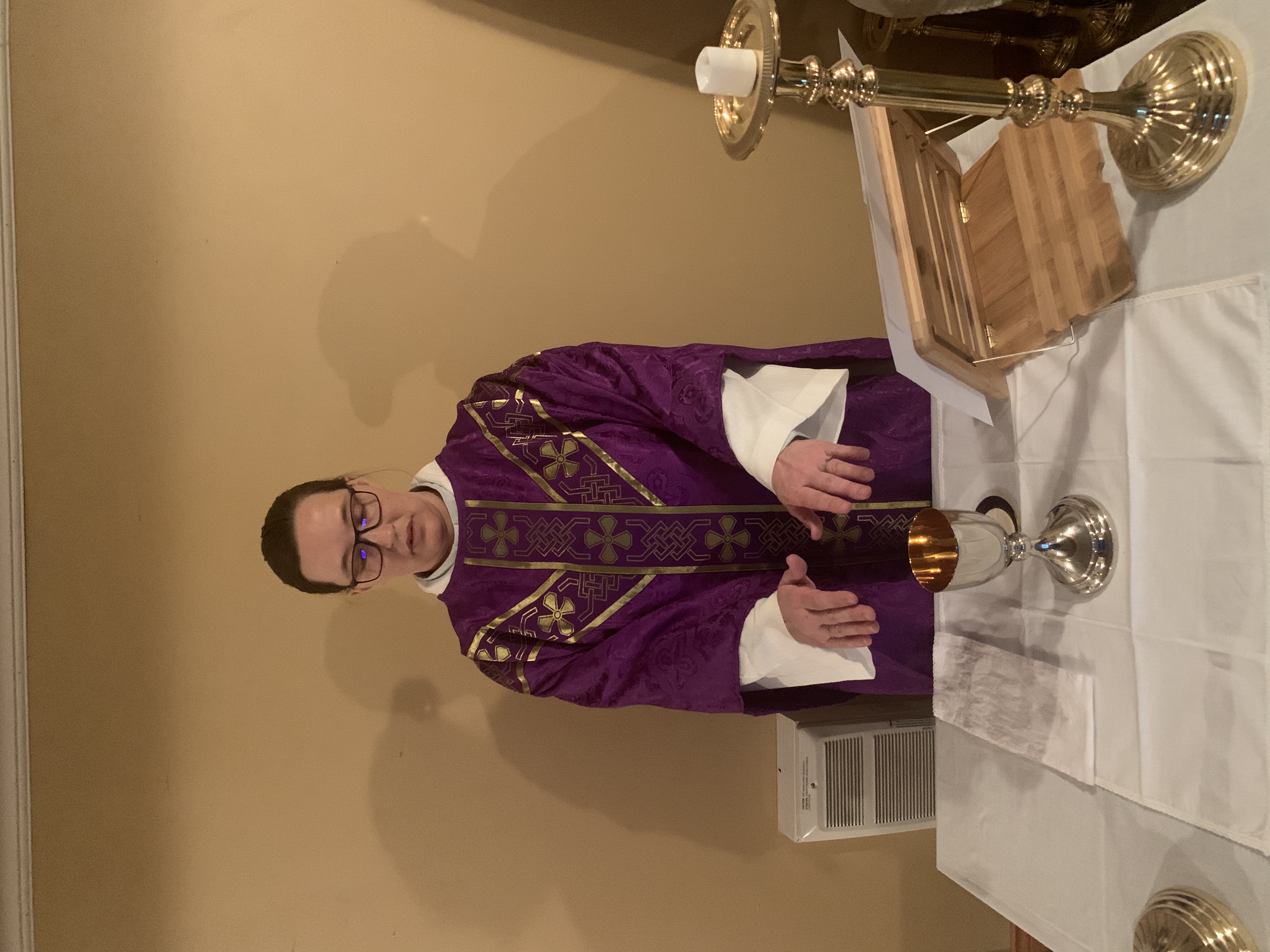
Amma Charlene at the Consecration of the Holy Eucharist
8.1 Clergy must adhere to high ethical standards and report illegal, unethical or unprofessional behavior to their supervisor or other appropriate church authority.
8.2 Clergy are required to report to the Director any arrest or citation involving conduct that violates the Archdiocese Policies and the Director shall gather available, relevant documentation and assess whether the particular matter should be forwarded to the Archbishop or the Ministerial Review Board, or both.
8.3 Clergy who have reason to believe that a minor is being abused or neglected or has been abused or neglected must immediately report the basis for their belief to:
a. Proper civil authorities, in accordance with local and federal statutes,
b. The Director of Ministerial Standards and Safe Environment (or other appropriate Archdiocesan official), and
c. Parents or guardians, unless to do so would expose the minor to additional risk, or unless instructed otherwise by civil authorities.
8.4 Suspected child pornography must be referred to law enforcement immediately.
Recent Articles
-
Catholic-Confession
Apr 19, 25 08:53 PM
Full breakdown of the Catholic Confession Sacrament of Reconciliation -
Ordination, incardination and dismissal of clergy
Mar 03, 25 06:47 PM
Overview of Ordination to Holy Orders, incardination and dismissal of clergy -
Catholic Last Rites
Mar 03, 25 06:41 PM
An explanation of the Catholic Last Rites and Anointing of the Sick
Boat Harbour West, Newfoundland, Canada. Cell Number 709-276-0626
